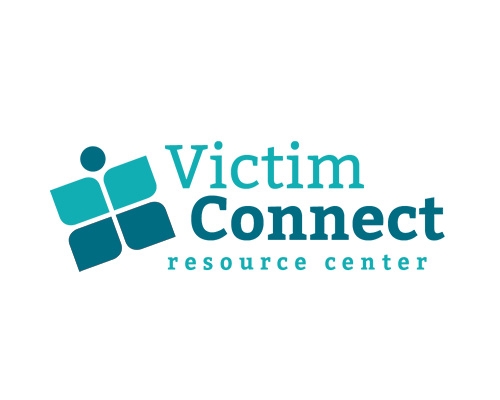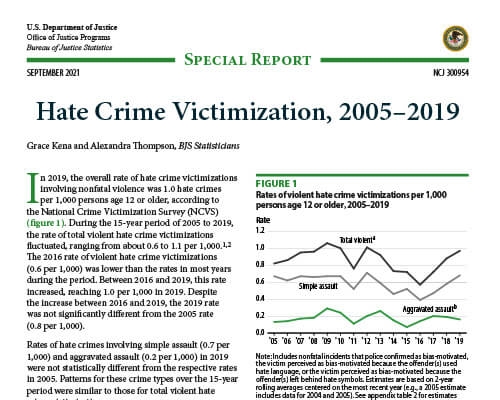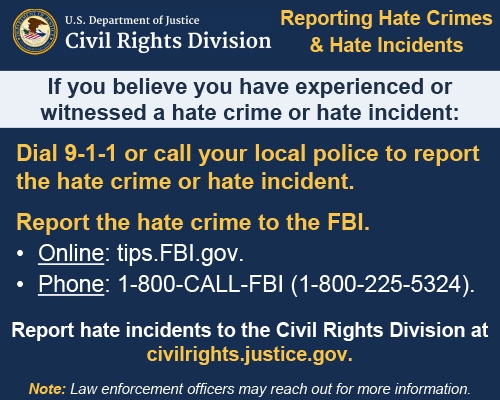Resources for Victims of Hate Crimes
The resources listed below were designed to support hate crime victims and victim service providers. Here you will find information on reporting hate crimes to law enforcement, support for crime victims, DOJ grants for supporting victims, and statistics.
How to Report a Hate Crime
Where to Find Support

The VictimConnect Resource Center provides phone, chat, and text-based services to all victims of crime, including survivors of hate crimes. Click below to see their Hate Crimes page, with specific tips and advice for survivors of hate crimes. Call or text VictimConnect at 1-855-484-2846.

Some states operate hate crime hotlines that provide a safe, anonymous reporting option for victims and witnesses of hate acts by offering a way to report what happened and receive support without contacting the police or law enforcement. The states below offer or are developing DOJ funded hate crime hotlines:
- California vs Hate Resource Line
Visit CAvsHate.org or call (833) 866-4283 (833-8-NO-HATE) - Illinois Help Stop Hate
Visit ILStopHate.org or call (877) 458-HATE - Nevada No Hate Crimes Hotline
Call (775) 687-4283 or (775) 687-HATE

Search the directory to find nonemergency crime victim service programs, including hate crime services, in the United States and abroad.
Hate Crimes Statistics

This report presents National Crime Victimization Survey (NCVS) data on hate crime victimizations from 2005 to 2019. Hate crimes in the NCVS include violent and property crimes that the victim perceived to be motivated by bias against the victim's race, ethnicity, national origin, gender, disability, sexual orientation, or religion. It includes crimes reported and not reported to police. The report examines the number of hate crimes over time, characteristics of hate crimes, perceived bias motivations for these hate crimes, reporting to police and reasons hate crimes were not reported, and demographic characteristics of victims and offenders.
- During 2015-19, nearly two-thirds (62%) of hate crime victimizations were simple assaults.
- A bias against the victim’s race, ethnicity, or national origin was the most common motivation for nonfatal violent hate crimes during 2015-19.


The National Crime Victimization Survey (NCVS) and National Incident-Based Reporting System (NIBRS) measure a set of criminal offenses that overlap but are not identical, which leads to differences in estimates between the two data sources.



